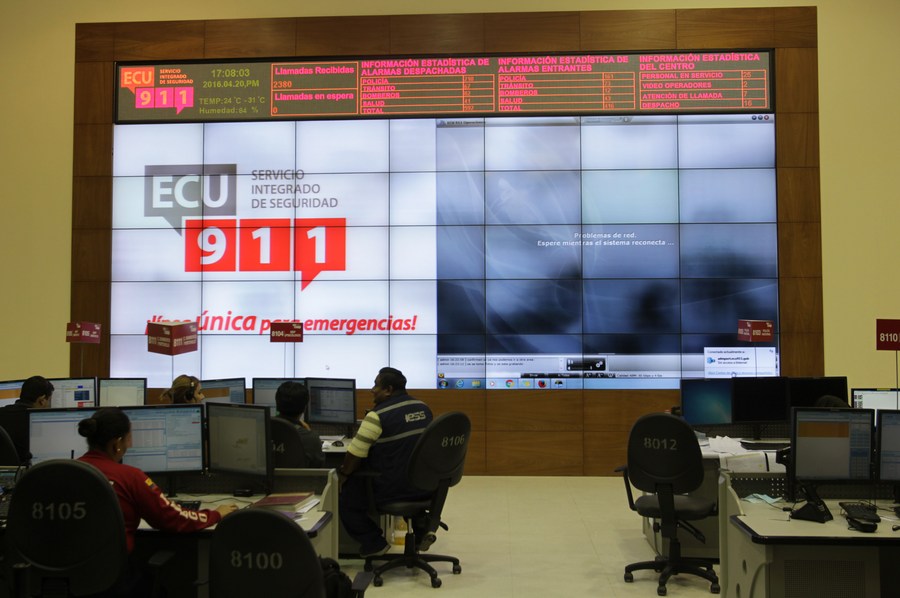Xi Story: BRI cooperation project that saves lives

Employees of the ECU 911 Integrated Security Service work after the earthquake in Manabi province, Ecuador, on April 20, 2016. The ECU 911, designed and built by China National Electronics Import and Export Corp.(CEIEC), connects Ecuador's various security and disaster relief agencies, such as police forces, fire departments, transportation, paramedic units and the Red Cross, to aid reaction speed to emergencies via a single telephone number, 911. (Xinhua/Rong Hao)
BEIJING, Oct. 16 (Xinhua) -- When Pablo Cordova was trapped beneath debris in a 7.8 magnitude earthquake in Ecuador, he did not expect that a phone call and some assistance from the other side of the globe would save his life.
Cordova was a member of staff at a hotel in Portoviejo, in Ecuador's coastal province of Manabi, one of the areas hit hardest by the deadly quake in April 2016. He was working in a hotel when the quake toppled the five-story building.
After the call was made, Cordova heard the sound of hope -- rescuers calling his name and machinery removing the rubble. "I'm here!" he shouted. The rescuers gave him a bottle of water. He drank some and used the rest to wash his face.
Finally, after over 40 hours under the debris, Cordova was pulled to safety.
Besides the relief workers on the site, Cordova said he also owes his life to his Chinese friends who helped his country develop the ECU-911, Ecuador's national emergency response system, an example of the Belt and Road Initiative (BRI) cooperation between China and his country.
"Without it, I could not have survived," he said.
The ECU-911, designed and built by China National Electronics Import and Export Corp., integrates the country's various emergency response and rescue services into a single platform. During the deadly earthquake, the ECU-911 system helped save many lives, showcasing the role of BRI projects in improving people's well-being.
For Cordova, he got a chance to express his thanks to his lifesavers in person.
In November 2016, months after the quake, Chinese President Xi Jinping visited Ecuador. He paid a visit to the headquarters of ECU-911 in Quito. There, he met with Cordova.
"I thank the president from the bottom of my heart," Cordova said.
Xi asked how seriously he was injured during the disaster.
"Your tenacious fight against the disaster is a reflection of the spirit of the Ecuadorian people... I believe you'll do well in your career," Xi told Cordova.
After being saved by others from the verge of dying, Cordova decided to embark on a new career as a member of staff at the ECU-911, reaching out and saving more people's lives.


